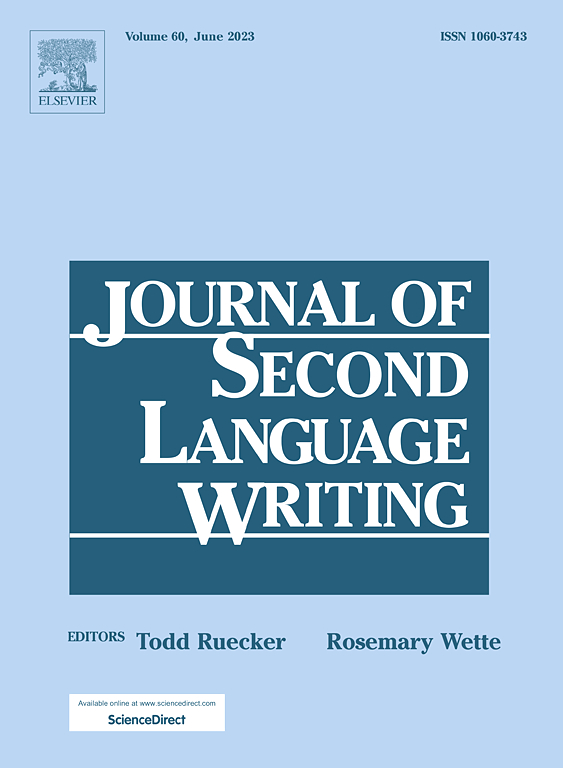Exploring EFL learners’ engagement and draft quality in a multi-stage expository writing task using model texts as a feedback facilitator: A mixed-methods study
IF 4.5
1区 文学
Q1 LINGUISTICS
引用次数: 0
Abstract
To enhance EFL learners’ engagement and writing, model texts as a feedback instrument (MTFI) have been used for the past two decades. This approach includes three primary stages: i) initial written output, ii) comparison of the output and model texts, and iii) rewriting of original drafts. However, the multidimensional nature of learners’ engagement and its relationship with text quality remain underexplored, particularly in expository writing. This study addresses these gaps by examining how learners engaged with MTFI emotionally, cognitively, and behaviorally, and how this engagement correlates with text quality. Sixty-eight Vietnamese EFL undergraduates were divided into a control group (CG, N = 33) and an experimental group (EG, N = 35). The EG participated in all three stages, while the CG did not partake in stage two. Data included note-taking sheets, written texts, follow-up questionnaires, and semi-structured interviews. Results showed that learners had a favorable attitude towards MTFI and displayed higher levels of cognitive and behavioral engagement with content-related and organizational features compared to lexical and grammatical aspects. Moreover, although both groups exhibited similar quality in the first drafts, the EG outperformed the CG in the rewritten compositions. Additionally, model-text awareness, a dimension of cognitive engagement, was moderately associated with learners’ overall text quality.
用模型文本作为反馈促进器探讨英语学习者在多阶段说明文写作任务中的参与度和草稿质量:一项混合方法的研究
为了提高英语学习者的参与度和写作能力,在过去的二十年里,模型文本作为一种反馈工具(MTFI)一直被使用。这种方法包括三个主要阶段:i)最初的书面输出,ii)输出和示范文本的比较,以及iii)原始草稿的重写。然而,学习者参与的多维性质及其与文本质量的关系仍未得到充分探讨,特别是在说明文写作中。本研究通过考察学习者如何在情感上、认知上和行为上参与MTFI,以及这种参与如何与文本质量相关,来解决这些差距。将68名越南大学生分为对照组(CG, N = 33)和实验组(EG, N = 35)。EG参加了所有三个阶段,而CG没有参加第二阶段。数据包括笔记纸、书面文本、后续调查问卷和半结构化访谈。结果表明,与词汇和语法方面相比,学习者对MTFI的态度较好,在内容相关和组织特征方面表现出较高的认知和行为参与水平。此外,尽管两组在初稿中表现出相似的质量,但EG在重写的作文中表现优于CG。此外,模型文本意识(认知参与的一个维度)与学习者的整体文本质量有适度的关联。
本文章由计算机程序翻译,如有差异,请以英文原文为准。
求助全文
约1分钟内获得全文
求助全文
来源期刊

Journal of Second Language Writing
LINGUISTICS-
CiteScore
8.80
自引率
13.10%
发文量
50
审稿时长
59 days
期刊介绍:
The Journal of Second Language Writing is devoted to publishing theoretically grounded reports of research and discussions that represent a significant contribution to current understandings of central issues in second and foreign language writing and writing instruction. Some areas of interest are personal characteristics and attitudes of L2 writers, L2 writers'' composing processes, features of L2 writers'' texts, readers'' responses to L2 writing, assessment/evaluation of L2 writing, contexts (cultural, social, political, institutional) for L2 writing, and any other topic clearly relevant to L2 writing theory, research, or instruction.
 求助内容:
求助内容: 应助结果提醒方式:
应助结果提醒方式:


